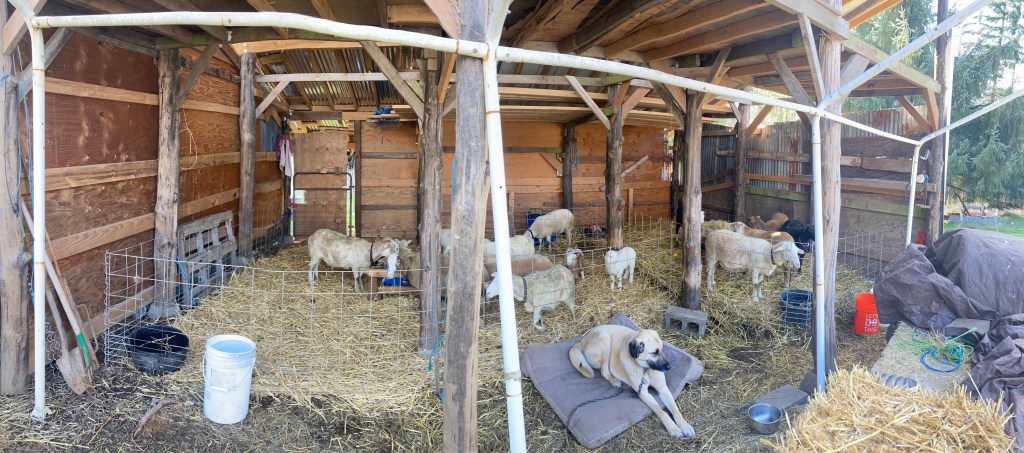
The Katahdin herd here at EEC Forest Stewardship has peaked in production starting 2022. We’re now offering ewes and lambs for sale. If you’re interested in low maintenance fine quality pasture raised meat sheep, these animals provide. Let graze and brows specialists turn vegetation into protein by the pound. Our sheep are born and raised on lush pastures and edge lands at EEC Forest Stewardship. The land receives only natural inputs, like straw and manure. There are no chemicals sprayed on these acres. The sheep’s diet includes some supplements of minerals and salt, along with winter local hay and east side alfalfa, but they also graze year round, having access to fresh vegetation in our evergreen state. When purchasing Katahdin Sheep from EEC, you’re also investing in harvesting and butchering support, so you can experience the full experience of small livestock production. We offer all services on sight, with hands on learning available.
At EEC Forest Stewardship, we believe in small scale production for ourselves and the community. Our own experience in raising, slaughtering, and butchering meat is a life long commitment to local food from the land; ethically raised and humanely handled from birth to death with intention and gratitude. In sharing this connection to place through pastoral herding and food production we become a part of this complex web of life and live fully within it. The covenant of livestock is complex and controversial as we witness a complete breakdown in our larger socioeconomic endeavor to provide enough food at an affordable price, while destroying the land that feeds us, and our own bodies through chemical poisoning. While there is still a possibility to drink clean well water and graze grass into protein rich sustenance, we’ll be raising Katahdins here at EEC.
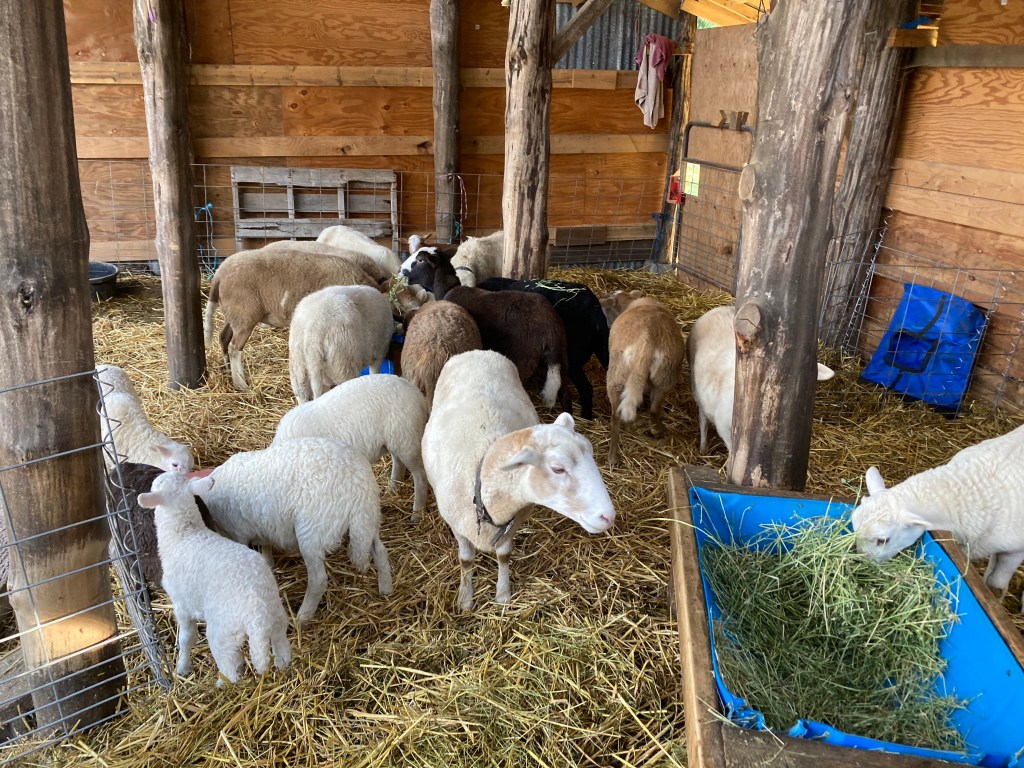

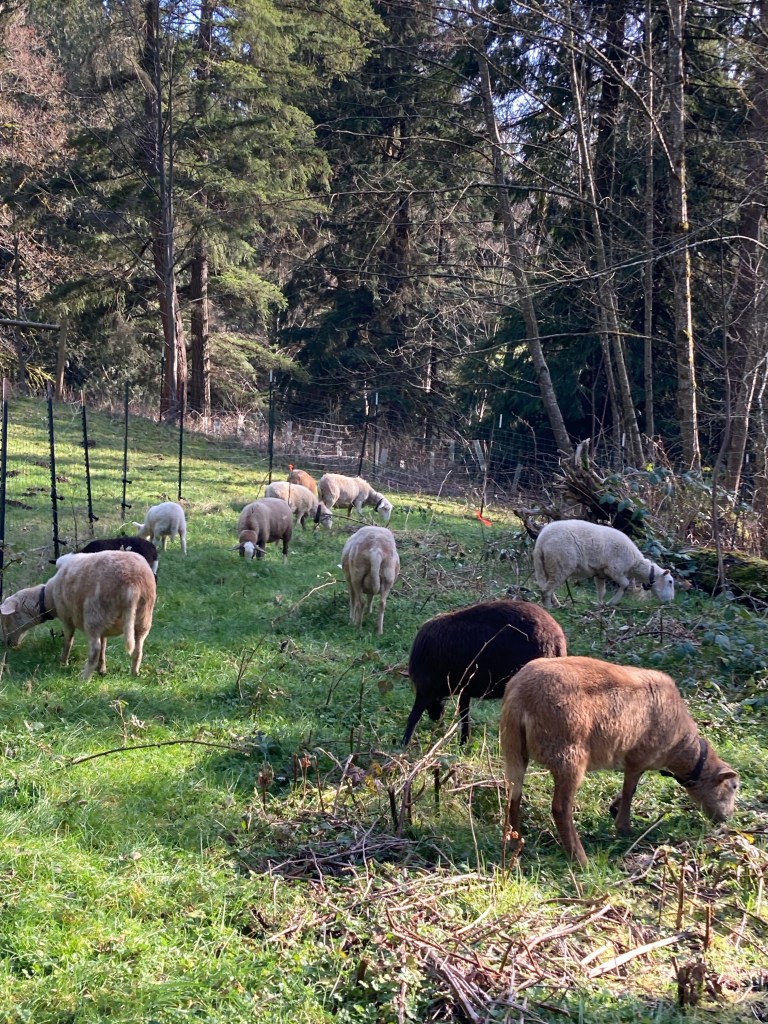
Not only are Katahdins great veggie to meat converters, they are also light hoof prints on the landscape, less impactful on the slopes our hill farm resides on. The little cloven hoof of a sheep has far less impact than larger animals like cattle and horses. Sheep are also good for the soil and restoration of the land where they are grazed properly- meaning good rotational planning to prevent compaction and ultimate degradation. If we overgrazed our land, it would erode away down the hills to the creek and there would be no topsoil left for any cultivation. Not to mention the detriment to salmon habitat in the waters below. Katahdin sheep are browsers, as well as grazers- meaning they will graze grass but they also love blackberry and creeping buttercup. Not all sheep will brows, but most hair sheep do.
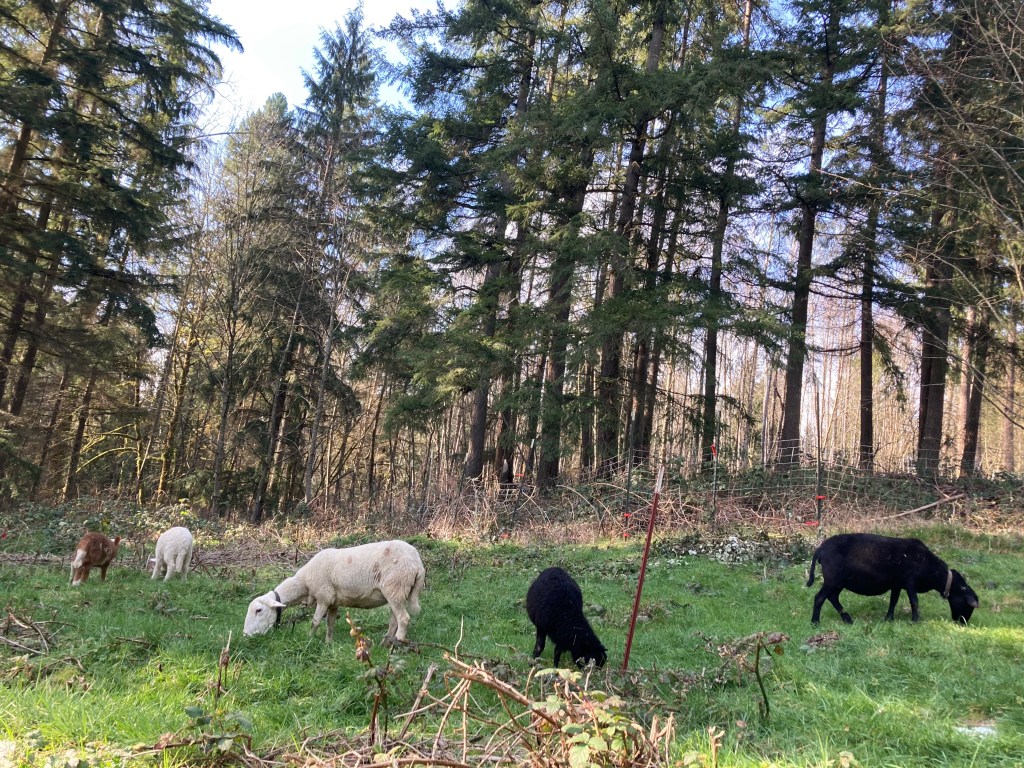
Hair is another great low maintenance quality in this breed, you don’t have to shear. From experience, shearing is a pain in the back, so having animals that naturally shed their winter coats in spring is a welcome trait. The fleece goes to bird nests, ground insect habitat, and calcium for the soil. We use the hair in hugaculture beds for insect habitat, and sometimes hand spin it into cordage. The Katahdin comes in many different coat colors, offering verity and uniqueness among your flock. EEC selects breeding stock based on confirmation, docility, and productivity. Our confirmation focus involves short legs and long backs. Docility means handleable, calm nature- we cull high strung animals, as they are not safe to handle and all domestic stock should be easy going for their own safety and yours. Productivity refers to fertility and carcass quality.
Our Cascade Katahdins are selected for twining, we do not select for triplets and quadruplets as most industrial lambing operations prefer. It is common in commercial lambing operations for the sickly lambs to be sold off as “bottle babies” at a cheap price. Though the industry would argue more lambs mean more profit, and the genetics are always improving towards that goal, the ewes are not happier for it, or healthier. Though our sheep may not drop large litters, two good healthy twins who will each get a live nipple to suckle is what’s most natural and efficient for the animal and her offspring. As an ethical shepherdess, my care is the health of the ewes and the lambs, believing in natural mothering (something Katahdins are renown for), and do not wish to stress her with too many lambs at once, or create more work for me with bottle feeding. I don’t want my ewes to end up with prolapsed uteruses or early mortality because of over-breeding to get maximum output over quality of life for all the animals.
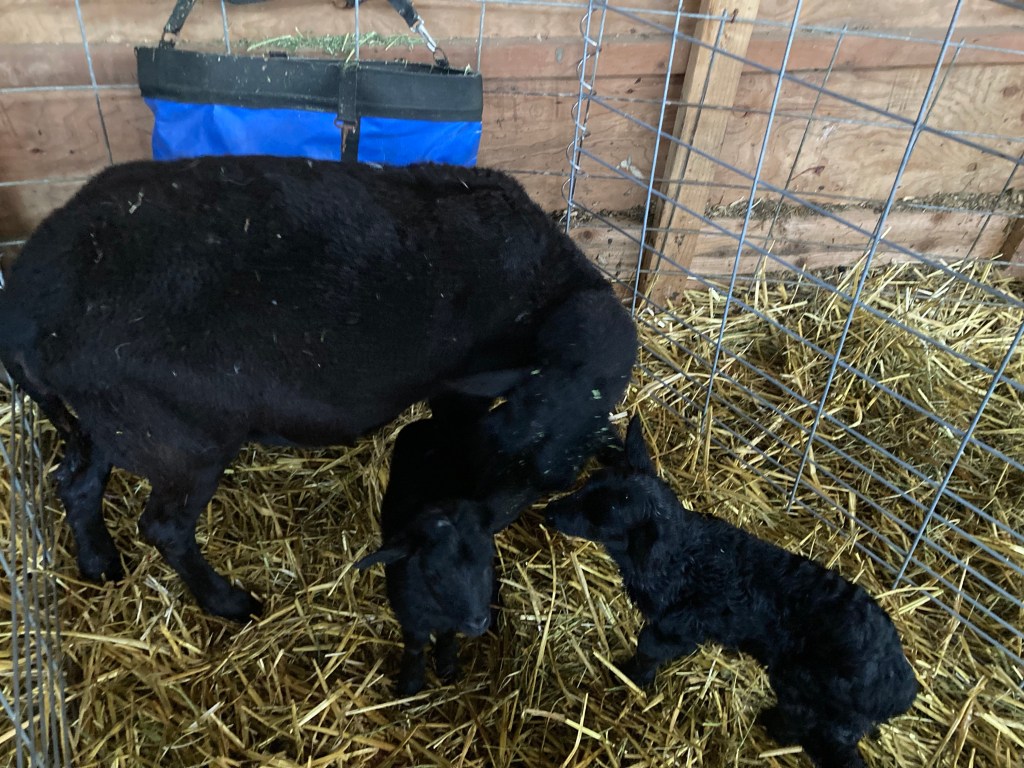
Why are the sheep not registered? This is the question I get often from clients who want papered animals. Our operation is not large enough to justify the cost and receive the benefit of registry. Since we’re also not selecting for commercial standards, our animals would not fit the expectations of competitive high production stock. To be clear- our animals are sound, quality meat sheep, but they are not machines. EEC sheep are great for small systems, like ours, where you are cultivating a home flock with a few extra lambs to sell to cover the cost of hay. This is a renewable system with predictable numbers, the ewes remain healthy and drop wonderful lambs that grow fast on mother’s milk. No substitute bottle formula can offer what a lamb’s own mother provides. This year’s lamb crop has been interesting- our earlier drops were mostly the standard white of their sire from 2021- our St. Croix ram King. His breed is part of the ancestry forming Katahdins, and we wanted to revitalize some of that standard back into our Cascade flock. The second half of our lambing outcome looked very colorful, and not so much like King- but he was the only ram exposed to the ewes this year, so we know it’s his genetics in half of our 2022 lambs. What a handsome confirmation and great gentle nature this ram offered our ewes this year.
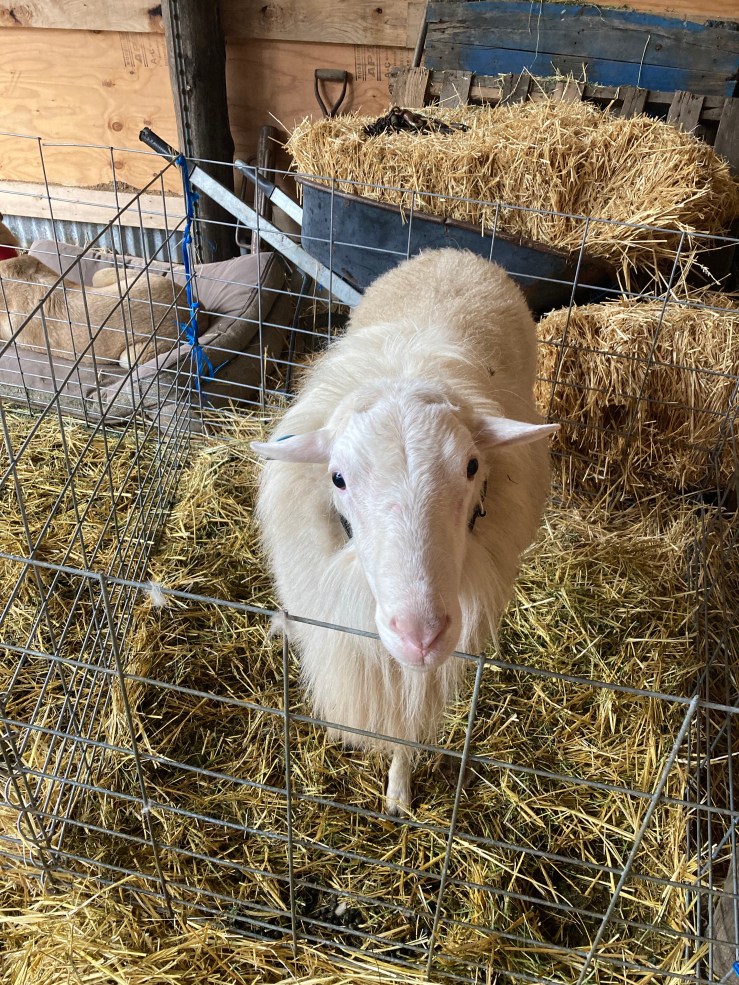

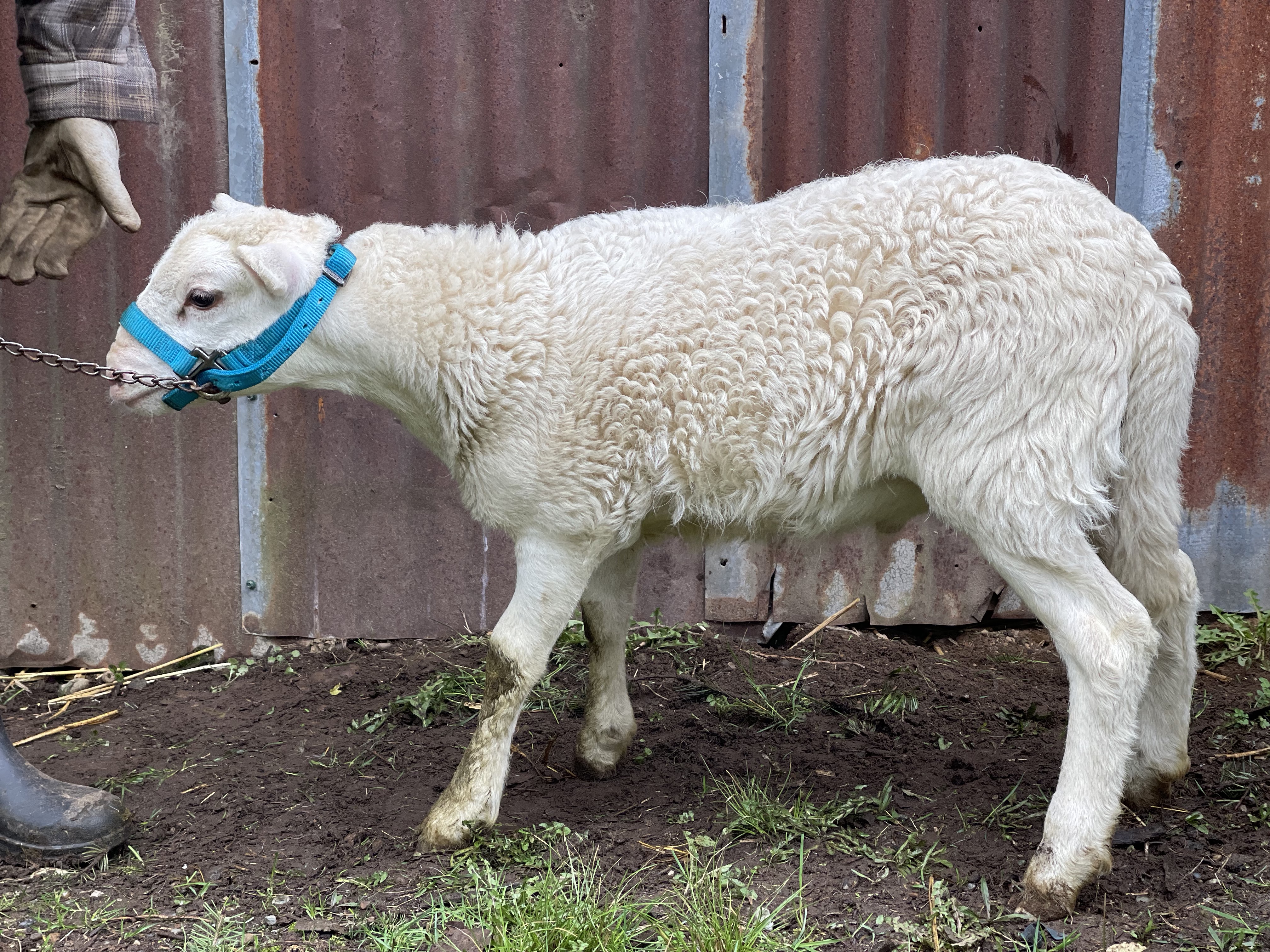
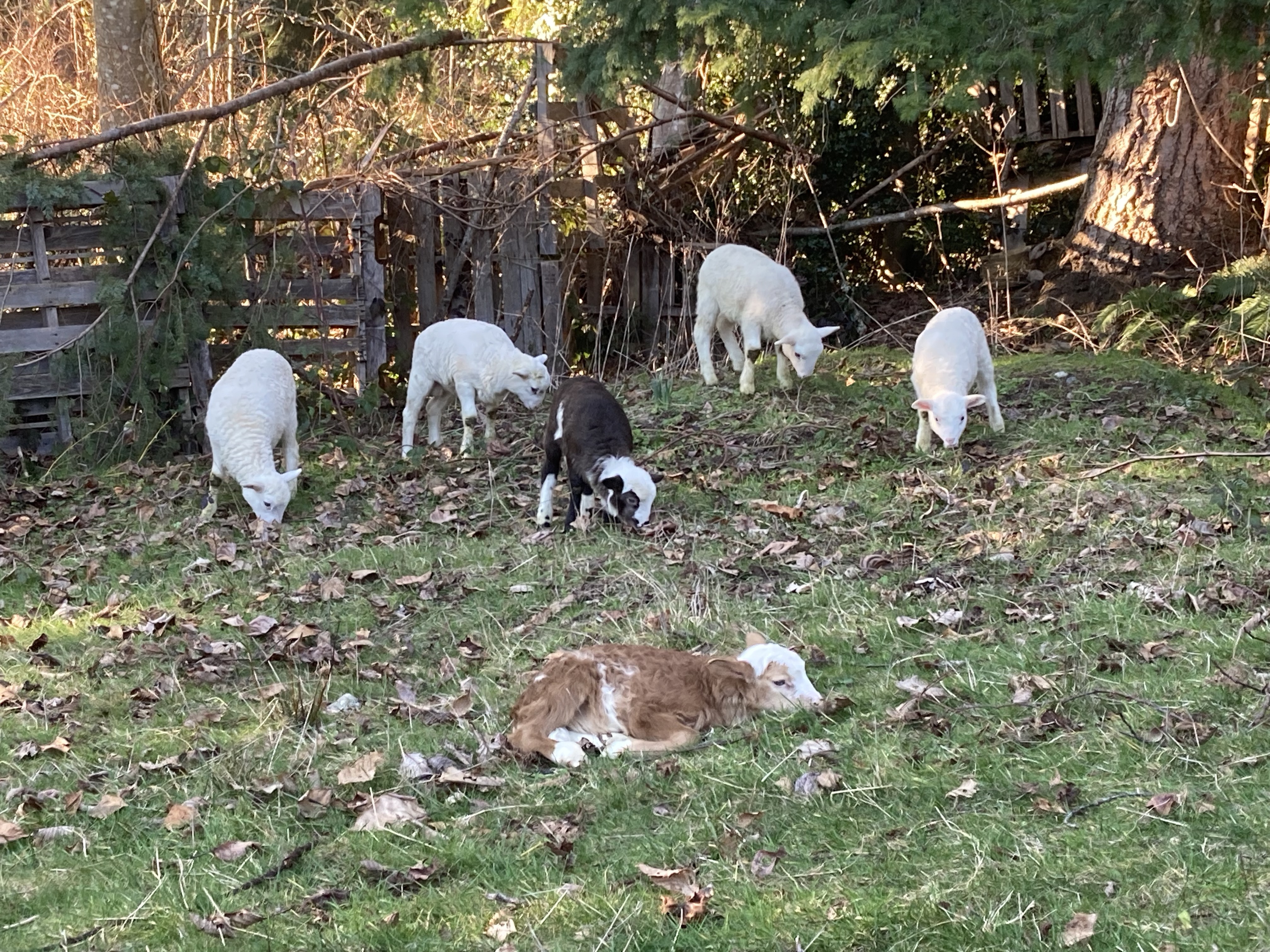
Our longer legged lambs will be sold as meat animals. We’ve got a few clients already signed up for weaned lambs in May. If you are interested in purchasing a meat sheep, lamb, or starter flock, EEC Forest Stewardship has Katahdins for sale. Please contact us at escocrain@gmail.com for more information on animals available. Our 2022 lambs will be ready for pickup in May.

We had a delicious leg roast from your herd last evening. Thank you for raising such wonderful meat animals!
LikeLiked by 1 person